Thai Chicken Noodle Soup
on Jan 04, 2019, Updated Feb 13, 2024
This post may contain affiliate links. Please read our disclosure policy.
Comfort food, but on the lighter side...This Thai soup uses rice noodles and comes together quickly!
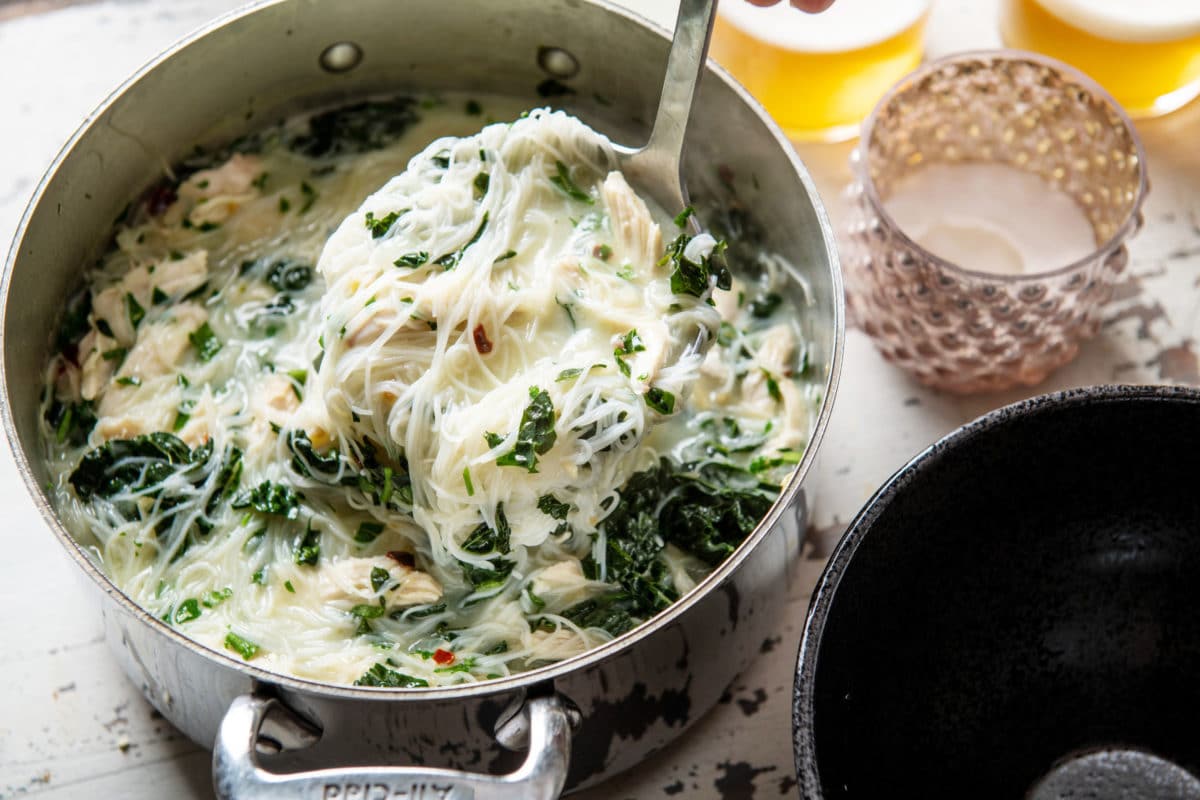
If you are a lover of Thai food, then you know that two of their most popular dish categories are noodles dishes (rice noodles in particular) and soups. And it stands to reason, therefore, that a Thai rice noodle soup recipe would probably showcase all that is delicious about this vibrant and clean cuisine. Serve with Thai Green Beans or a Thai Cucumber Salad.
I edited two Thai cookbooks when I was in my early 20s, and that was the beginning of a lifelong love affair with this amazing Southeast Asian cuisine.
Table of Contents
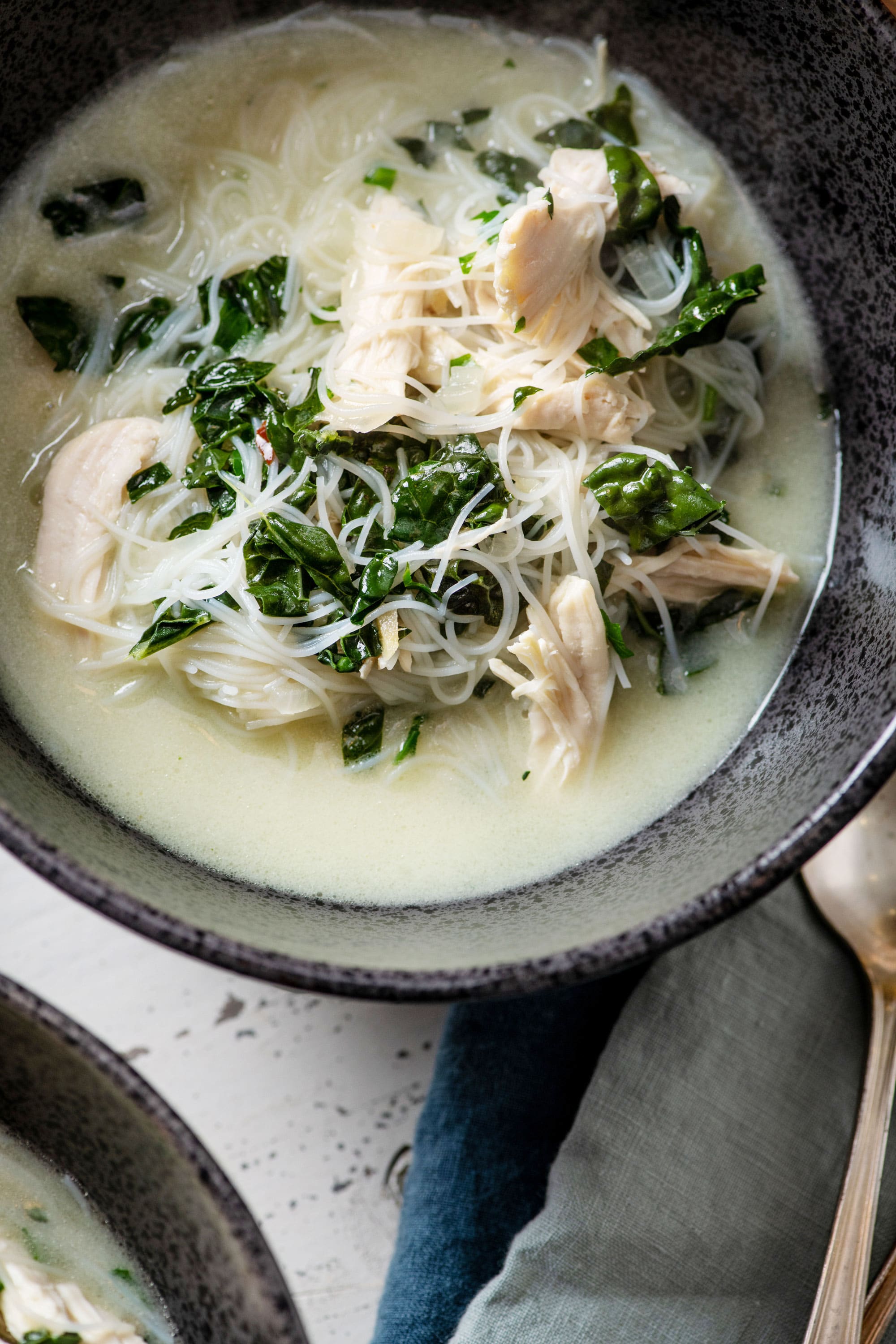
Thick Chicken Noodle Soup: If you like Thai food, and you like chicken noodle soup, then you are going to really love this.
Tweet This
Thai Chicken Noodle Soup Ingredients
You don’t need many ingredients for this Thai chicken noodle soup recipe…
- Rice noodles – There are different widths and thicknesses of rice noodles available. I used vermicelli noodles for this soup. Rice vermicelli is a thin noodle (think angel hair or wheat vermicelli noodles) with a delicate texture and mild flavor that can be used for stir-fries, noodle soups, and chilled noodle salads.
- Chicken breast – You can substitute thighs for the breasts. Just let them simmer for another 3 or 4 minutes until cooked through.
- Chicken broth – The base of this warming soup.
- Minced shallots
- Ginger – Adds a bit of heat and spice.
- Baby kale or spinach – Adds a leafy, green element to this noodle soup.
- Coconut milk – The coconut milk adds nuttiness and creaminess. You can find it in Asian markets, in the Asian section of the supermarket, or online.
- Jalapeño pepper – You can take the seeds out of the jalapeño for a milder soup or leave them in for a bit more heat. For a very spicy soup, use another jalapeño.
- Fish sauce – Fish sauce is an ingredient you will want to have on hand if you plan to make Thai food on the regular. It’s an anchovy extract commonly used in Southeast Asia as a cooking sauce to add a salty, savory, umami taste to dishes.
- Red pepper flakes – To serve.
- Lime – Zest and juice to serve.
Variations
- You can use any leafy green in place of the kale or spinach, which will provide a similar green element to the soup.
- If you’re aiming for more authenticity, you can use Thai chiles rather than jalepeños to provide the kick.
- For a vegetarian alternative, use tofu instead of chicken, opt for vegetable broth instead of chicken broth, and explore How to Make Vegan Fish Sauce.
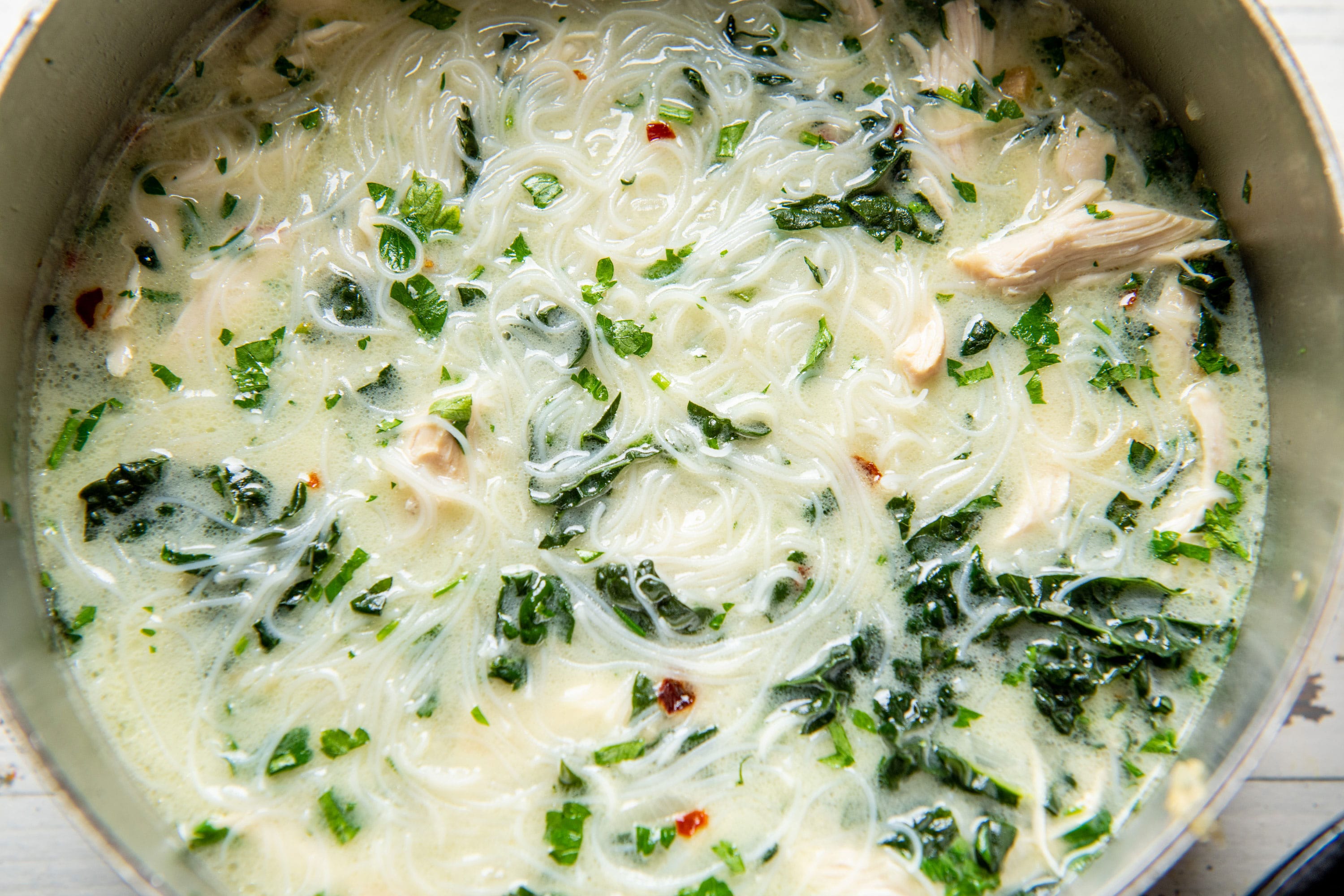
How to Make Thai Chicken Noodle Soup
- Cook the noodles: Cook the rice noodles according to package directions, and rinse them with cold water to stop the cooking.
- Prep the broth: Bring the chicken broth with the shallot and ginger to a simmer in a large soup pot or Dutch oven. Add the chicken, cover, and bring to a simmer. Lower the heat and continue to simmer for 8 to 10 minutes until the chicken is cooked through. Remove the chicken to a platter with tongs, reserving the broth. Shred the chicken when it is cool enough to handle.
- Combine ingredients and broth: Meanwhile, add the coconut milk to the broth and return to a simmer over medium heat. Add the kale or spinach, and simmer for 3 to 5 minutes, until the spinach or kale is tender. Add the shredded chicken, cooked rice noodles, jalapeño, fish sauce, red pepper flakes, lime zest, juice, and cilantro (if desired) and heat just until it returns to a simmer, about 1 more minute.
- Serve.
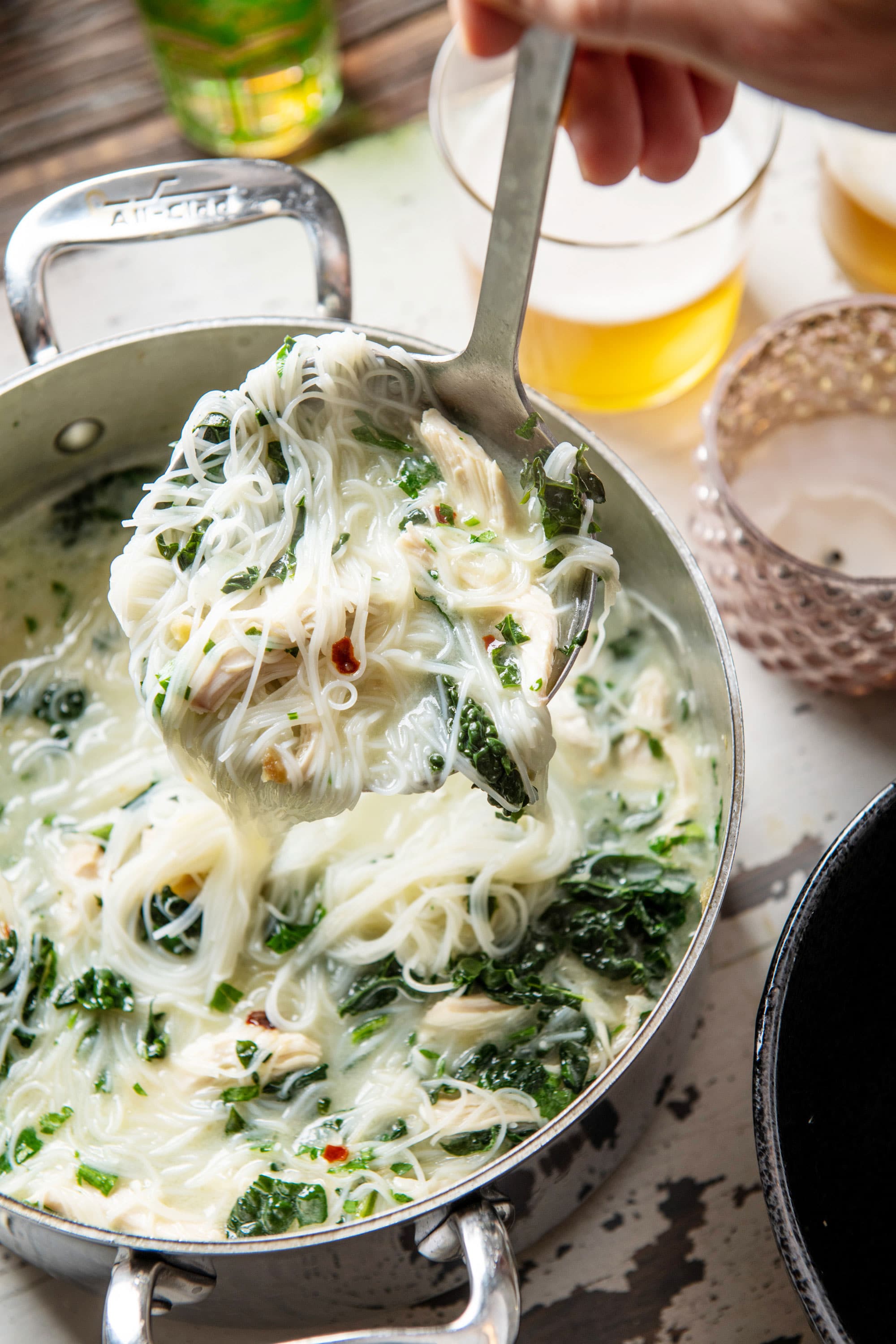
FAQs
If you have never cooked with rice noodles, it’s just as easy (if not easier!) than cooking wheat pasta. There is nothing hard about cooking them, in the same way that there is nothing hard about cooking any kind of noodles or pasta.
The difference is with rice noodles, you are usually giving them a soak in very hot water, versus adding them to a pot of boiling water. And, as with regular noodles, the main goal is not to overcook them, as you want taut noodles with spring and bounce and elasticity versus overcooked and soggy or mushy noodles. That’s all you have to do to get great rice noodles — keep an eye on them and drain at the right moment.
Fish sauce! It adds that aromatic something to this soup that’s hard to put a finger on but definitely characteristic of what makes Thai cooking so unforgettable. With its intense flavor, just a dash or two is used to add depth and brightness to all kinds of seafood or meat dishes. Don’t be alarmed by the intense smell — its bark is worse than its bite, promise!
Thai Chicken Noodle Soup Cooking Tips
- For more rice noodle cooking tips, explore How to Cook Rice Noodles.
- Make sure not to overcook the greens in the soup. Just give them enough time to become wilted and tender.
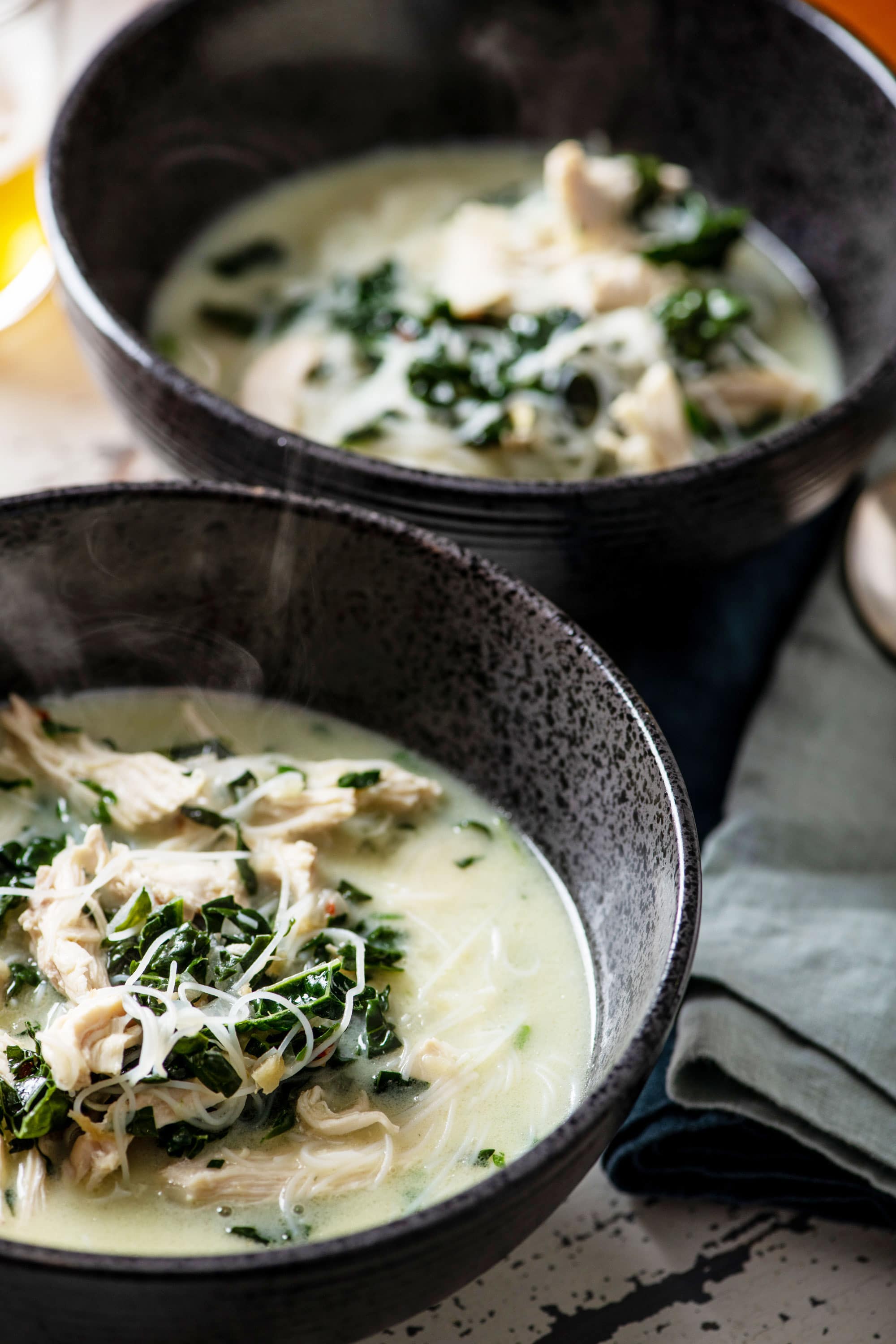
What to Serve With Thai Chicken Noodle Soup
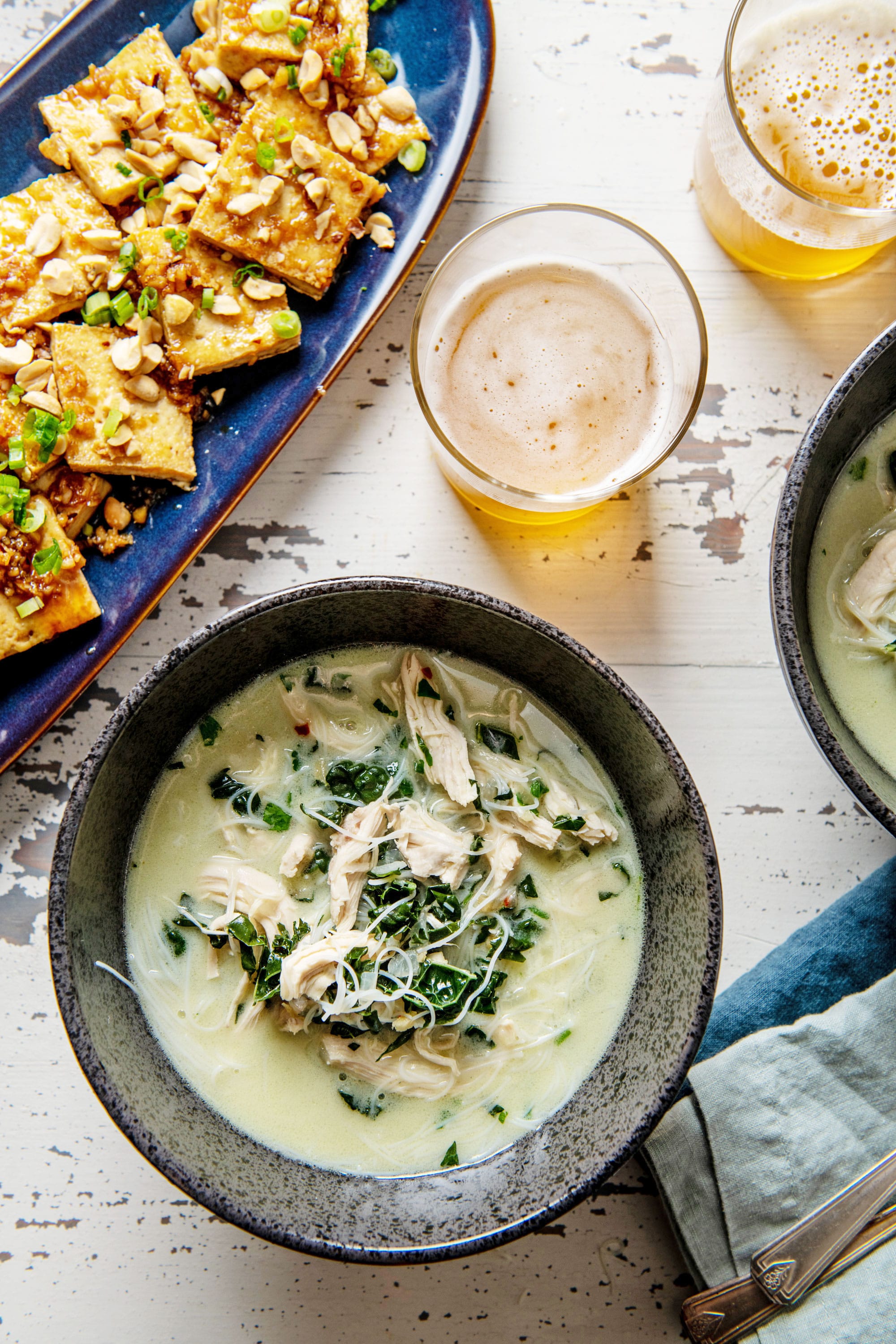
More Chicken Soup Recipes to Beat the Cold
- Spicy Thai Chicken and Rice Noodle Soup
- The Easiest Shortcut Chicken Ramen Noodle Soup
- Avgolemono Soup
- Mexican Tortilla Chicken Soup
Pin this now to find it later
Pin It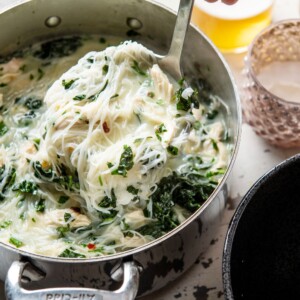
Thai Chicken Noodle Soup
Ingredients
- 8 ounces rice noodle vermicelli
- 4 boneless skinless chicken breasts (about 2 pounds)
- 8 cups chicken broth
- ⅓ cup minced shallots
- 2 tablespoons peeled and grated fresh ginger
- 1 (5-ounce) container fresh spinach or kale (sliced or chopped, about 4 cups)
- 2 (13.5-ounce) cans coconut milk
- 1 jalapeño (minced, see Note)
- 1 tablespoon fish sauce
- Pinch red pepper flakes
- Zest and juice of 2 limes
- 3 tablespoons chopped cilantro leaves (optional)
Instructions
- Cook the rice noodles according to package directions, and rinse them with cold water to stop the cooking.
- Bring the chicken broth with the shallot and the ginger to a simmer in a large soup pot or Dutch oven. Add the chicken, cover, bring to a simmer, then lower the heat and continue to simmer for 8 to 10 minutes until the chicken is cooked through. Remove the chicken to a platter with tongs and let cool slightly, reserving the broth. Shred when it is cool enough to handle.
- Meanwhile, add the spinach or kale and coconut milk to the broth and return to a simmer over medium heat. Simmer for 5 minutes, until the kale is tender. Add the shredded chicken, cooked rice noodles, jalapeño, fish sauce, red pepper flakes, lime zest and juice, and cilantro (if desired) and cook until it returns to a simmer, about 1 more minute.
- Serve hot, in bowls.
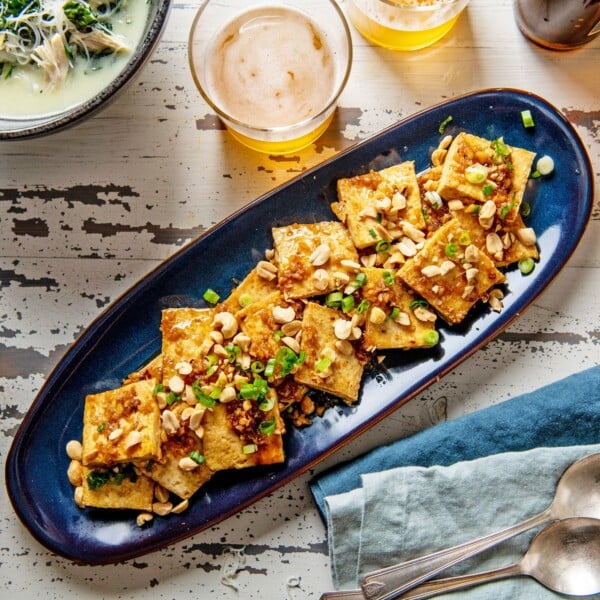
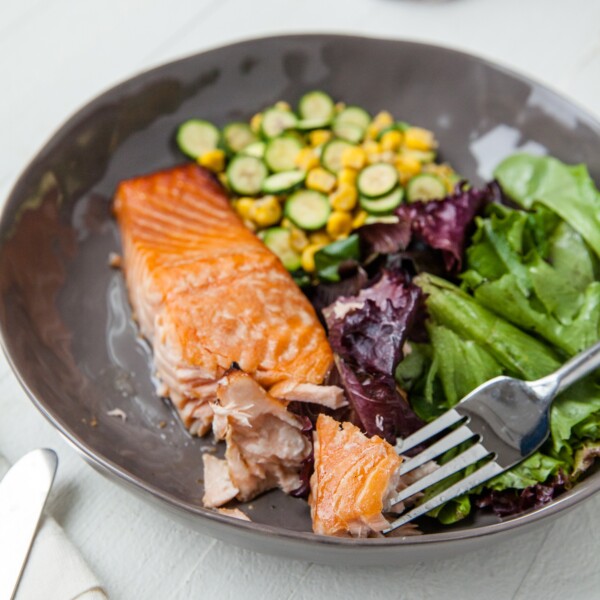
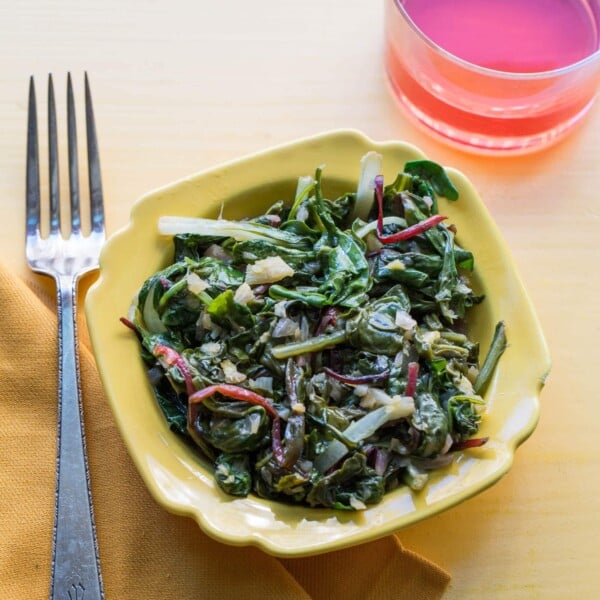
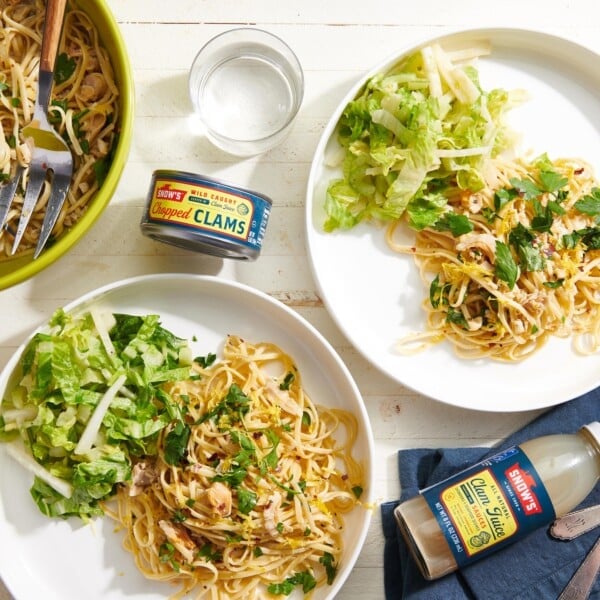
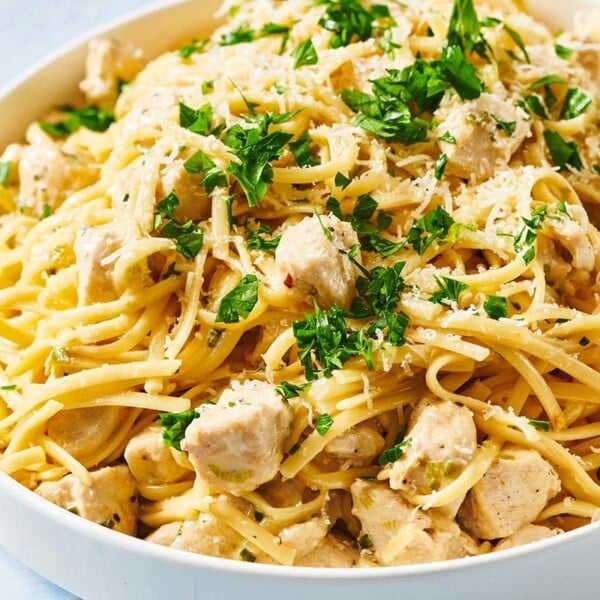
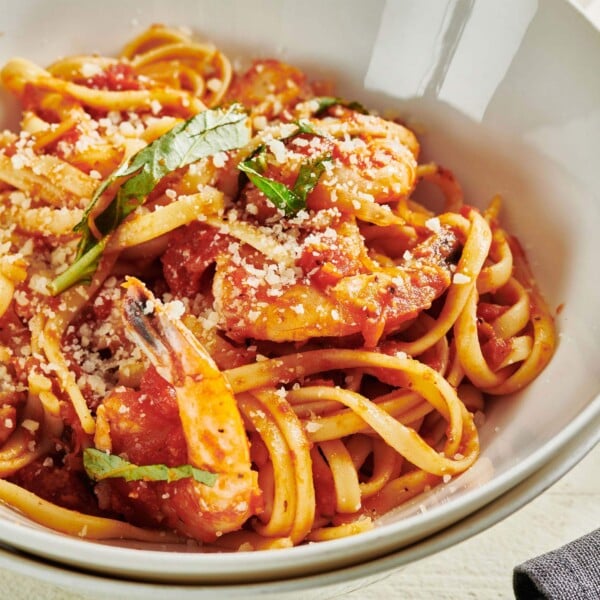
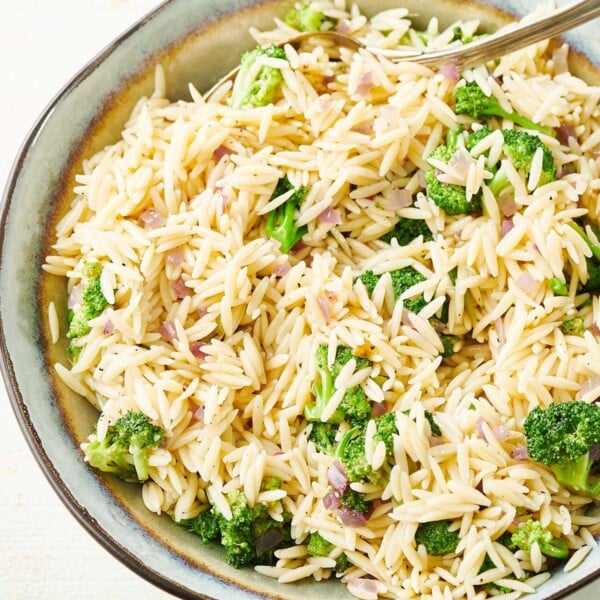









This recipe looks great! I’m confused, though — when does one add the jalapeno?
sorry – it’s clarified in there now!